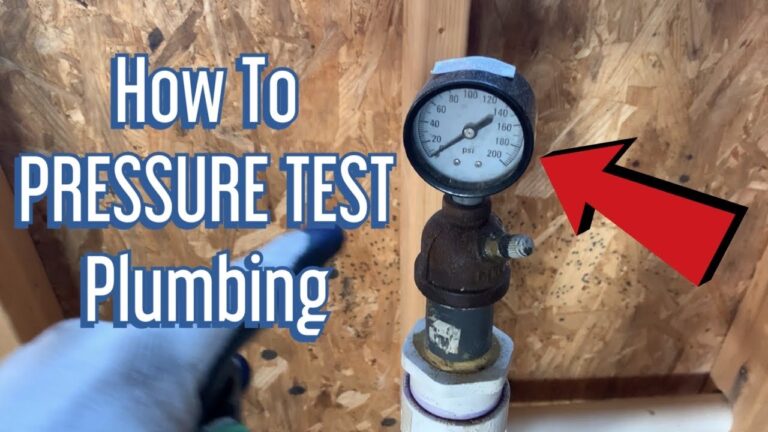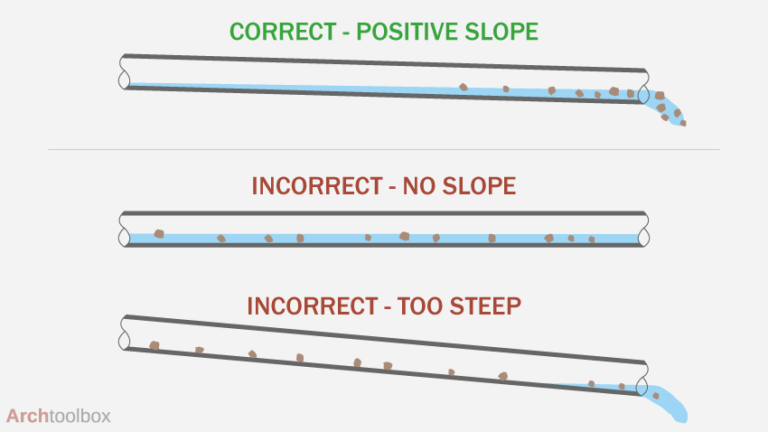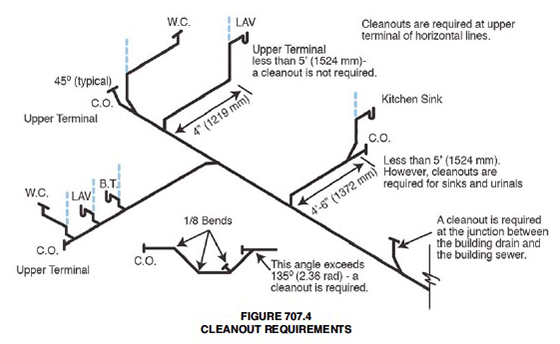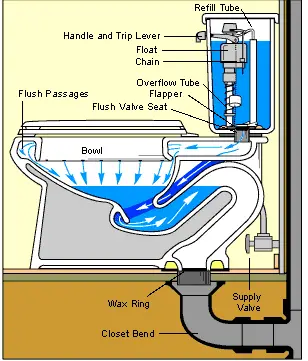How Long Does A Water Softener Last?
A water softener is a device that is used to reduce the amount of calcium and magnesium in hard water. The result is softer water that is more pleasant to use and easier on plumbing and appliances. Generally, water softeners are rated to last an average of 8-10 years, however, with proper maintenance and care, they can last much longer. With the right combination of regular maintenance, proper sizing, and quality equipment, a water softener can last 15-20 years or more.
What is a Water Softener?
A water softener is a device that is used to remove harmful minerals, such as calcium and magnesium, from hard water. The process involves passing the water through a tank that contains a bed of small resin beads. The beads contain sodium, which binds with the minerals in the water to form a softening solution. This removes the hardness from the water, making it softer and more pleasant to use. Water softeners are used in many households and businesses to improve water quality and reduce corrosion in pipes and plumbing.
When it comes to how long a water softener will last, it depends on several factors, including the type of unit, the quality of the water, and how often it is used. Generally speaking, a quality water softener should last around 10 years with proper maintenance and care. It’s important to note, however, that the lifespan of a water softener can vary greatly depending on the type, size, and conditions of the unit. Additionally, the life expectancy of a water softener can be extended by using a water softener salt and regularly changing the filter. All in all, it’s important to keep up with regular maintenance and servicing to ensure your water softener lasts as long as possible.
What Factors Determine the Life Span of a Water Softener?
The life span of a water softener is determined by a variety of factors, from the type of water softener you have, to the quality of the water, to the amount of maintenance and care that is given. The average water softener should last between 8-12 years, however, with proper maintenance and care, they can last up to 15 years. The type of water softener you have is the most important factor that determines how long it will last, as certain types are more durable than others. Additionally, the quality of the water you’re using is important, as hard water can cause a water softener to degrade more quickly. Maintenance is also key, as regular maintenance can help extend the life of your water softener. With proper care and maintenance, you can ensure that your water softener lasts a long time.
How Often Should You Replace the Softener?
Water softeners are essential home appliances that help reduce the levels of hard minerals such as calcium, magnesium, and iron, from tap water. This process helps improve the quality of water, making it softer and better-tasting. But how long does a water softener last? That depends on numerous factors, such as type of softener, maintenance schedule, and water conditions.
In general, a water softener installed in a household can last anywhere from 10 to 20 years. However, the life expectancy of the softener may decrease if it is not properly maintained. Replacing the softener every 8 to 10 years is recommended to ensure it is working correctly. It is important to remember that the softener needs to be serviced regularly to ensure its optimum performance. Regular maintenance includes checking the condition of the internal components and replacing them as necessary. This should be done at least once a year.
When it comes to replacing the softener, it is best to follow the manufacturer’s guidelines. If the manufacturer recommends replacing the softener every 8 to 10 years, then it is best to adhere to this timeframe. However, if the softener is showing signs of wear and tear or there is a noticeable decrease in its performance, then it is best to replace it as soon as possible.
Overall, the life expectancy of a water softener depends on various factors such as type of softener, maintenance schedule, and water conditions. To ensure maximum performance of the softener, it is important to regularly inspect and maintain it, and replace it when necessary.

How Can You Prolong the Life of Your Water Softener?
Water softeners are a great investment for homeowners as they help to improve the quality of their water supply. However, it’s important to take care of your water softener in order to extend its lifespan and maximize its value. Here are some tips to prolong the life of your water softener.
First, be sure to perform regular maintenance, such as cleaning the brine tank and checking the filter. Additionally, you should also check the pressure gauge to ensure that the water pressure is within the manufacturer’s recommended range. Finally, you should use a high-quality salt to fill the brine tank, as this helps to prevent the accumulation of mineral deposits.
You should also consider replacing your water softener if it’s more than ten years old. As water softeners age, they become less efficient and can cause damage to plumbing systems. Additionally, new water softeners are more energy efficient and can save you money in the long run.
By following these tips, you can prolong the life of your water softener and enjoy clean, soft water for years to come. Investing in a quality water softener and taking care of it will ensure that your investment pays off in the long run.
What Are the Signs of a Failing Water Softener?
Water softeners are essential for any home that has hard water, but they don’t last forever. Knowing the signs of a failing water softener can help you make the best decision for your home.
One of the most common signs of a water softener on its way out is low water pressure. This is especially true if the unit has been running for some time. If the water pressure is low, it could be a sign that the unit is no longer working as efficiently as it should.
Another indication of a failing water softener is a lack of salt. If you notice that the salt level is dropping more quickly than usual, it could mean that the unit is not regenerating as it should. Additionally, if you notice that the water still tastes and feels like it did before you installed the water softener, it could be a sign that the unit is not working correctly.
Finally, if your water softener is making strange noises such as whistling or buzzing, it could mean that the motor is not functioning properly. This could mean that the unit is not able to regenerate itself properly, and therefore not filtering all the hard minerals from your water.
By paying attention to these signs, you can determine when it’s time to replace your water softener. Keeping a close eye on these indicators can help you avoid major damage or even health risks associated with hard water.
What Are the Benefits of Replacing Your Water Softener?
One of the most common questions homeowners have when considering a water softener is how long it will last. The good news is that, with proper maintenance and care, a water softener can last for many years. But, if your water softener has been around for a while, it may be time to consider replacing it. Replacing your water softener can offer a variety of benefits, from improved water softening performance to lower energy costs.
When replacing your water softener, you can choose from a variety of models that are designed to fit the specific needs of your home and family. A newer model may be more efficient, and thus require less energy to operate, helping to reduce energy bills. Additionally, new models are more likely to be equipped with advanced features, such as digital controls and built-in sensors, which can help to monitor water usage and provide more accurate water softening.
Finally, replacing an older water softener can help to increase the longevity of your plumbing system. Hard water can cause scale buildup in pipes, leading to clogged fixtures and decreased water flow. A newer water softener can help to reduce the amount of scale buildup, which can help to keep your plumbing system functioning properly for many years.
Replacing your water softener can offer a variety of benefits, from improved performance and energy savings to longer-lasting plumbing systems. When it comes time to replace your water softener, make sure to do your research and choose the model that is best suited for your home and family.
FAQs About the How Long Does A Water Softener Last?
1. How long does a water softener typically last?
Answer: On average, a water softener can last up to 10-15 years with proper maintenance. However, this lifespan can be affected by usage and water quality.
2. What factors can affect the longevity of a water softener?
Answer: The longevity of a water softener is mainly determined by the quality of the water being treated, the amount of water being used, and the frequency of maintenance and/or repairs.
3. How can I prolong the lifespan of my water softener?
Answer: To prolong the lifespan of your water softener, you should regularly check and maintain the system, replace the resin beads and other components as needed, and use a quality water filter to keep the water clean and free of contaminants.
Conclusion
The amount of time a water softener will last depends on a variety of factors, such as the type of softener, the quality of the materials used, the amount of water used, and the maintenance and care given to the softener. Generally, the average lifespan of a water softener is 8-10 years, though some may last longer. It is important to properly maintain and care for the softener in order to ensure it lasts as long as possible.







